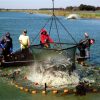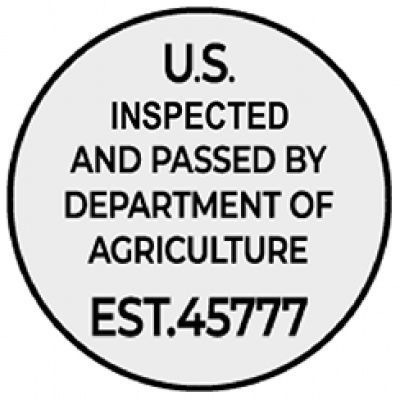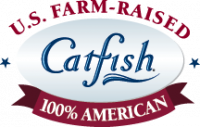USDA Catfish Regulations Raise the Bar on Consumer Safety
Heartland Catfish Co. Sets the Standard for Industry Processing and Inspection Program
ITTA BENA, Miss. (Nov. 8) – Catfish is joining the ranks of meat, poultry and processed egg products. Heartland Catfish Company strongly supports the U.S. Department of Agriculture’s Food Safety Inspection Service’s (USDA FSIS) move to oversee inspections of catfish and similar fish products, said Danny Walker, President of Heartland Catfish Company.
“We’re strong believers in the power of the inspection program to level the playing field between our highly-regulated and inspected domestic product and the previously unregulated imported competition,” Walker said.
The USDA’s FSIS program came into full enforcement on September 1, 2017, after an 18-month transition period for catfish processors to come into full compliance with the inspection standards. Prior to this new program, foreign producers of catfish, and other fish that collectively belong to the order of species known as Siluriformes, were not held to the same production standards as U.S.-based producers. Such requirements govern the conditions in which the fish are raised and ensure they are not exposed to harmful chemicals, among other quality-control measures.
Heartland Catfish Company’s processing facility in Itta Bena, Miss., has played an important role in setting the industry standard for FSIS inspections, according to Dr. William James, chief consultant at William James and Associates, a consulting agency that assists poultry and meat companies with domestic and international issues of regulatory compliance, humane handling, supply chain security, equivalence and other areas of food safety and international trade. James is also a former USDA FSIS chief veterinarian, a position he held following a 28-year career with the USDA.
“The goal of the FSIS inspection program is to ensure that food processing plants are producing safe food in sanitary environments,” James said. “FSIS inspectors perform daily inspections to enforce safety standards in plants across the country.”
“Heartland Catfish Company’s Itta Bena facility is a showcase plant for USDA FSIS’s inspector training program,” James said. “The plant is newer, spacious and does an excellent job of sanitation. They have been generous in opening their doors to FSIS to train its people and learn how a proper catfish processing facility operates.”
As a leader in the U.S. Farm-Raised Catfish industry, Heartland Catfish Company is proud to help set the industry standard and recognizes the value the inspection program brings to the industry. Beyond ensuring consistent product quality, the new regulations protect consumer safety and assure fair trade practices.
“We’re proud to work in cooperation with FSIS to take the lead in helping establish industry standards for automation and sanitation,” Walker said. “With our processes and facilities as a precedent, we know these efforts will only improve the quality of food available to U.S. consumers throughout the country.”
Heartland Catfish Company’s facility has hosted a number of international and Washington, D.C.-based USDA inspectors throughout the transition period. In the two months since the launch of the full enforcement period, Heartland Catfish Company reports it has experienced zero compliance infractions.
Previously, the Food and Drug Administration (FDA) controlled oversight of the catfish and other Siluriformes industry. With the industry’s transition to the USDA, FSIS now requires countries that export their catfish-similar products, like pangasius, to the U.S. to demonstrate their inspection systems are equivalent to the inspections American processors must undertake.
The change also requires foreign catfish imports to go through a “secondary inspection” at U.S. ports of entry. Catfish is now regulated similarly to other farm-raised domestic products such as beef, pork and poultry.
“Whereas all U.S. Farm-Raised Catfish producers like ourselves were already highly regulated to make sure our processes and procedures produce a verifiably high-quality, safe end-product, there were no such requirements of our foreign competitors,” Walker said. “These additional points of inspection raise the bar and increase the safety of America’s food supply.” Foreign catfish producers will be required to comply with FSIS standards beginning in March 2018.
Founded in 1995, Heartland Catfish Company has grown into the country’s largest U.S. Farm-Raised Catfish producer and processor, with plants in Itta Bena, Miss., and Greensboro, Ala. Owned by the Tackett Family of Tackett Fish Farms, Heartland Catfish Company is the largest single producer of farm-raised catfish in the United States and sells fresh and frozen catfish products to retailers and restaurants around the country. Follow Heartland Catfish Company on Facebook, Twitter, LinkedIn and Instagram and visit heartlandcatfish.com to learn more.





